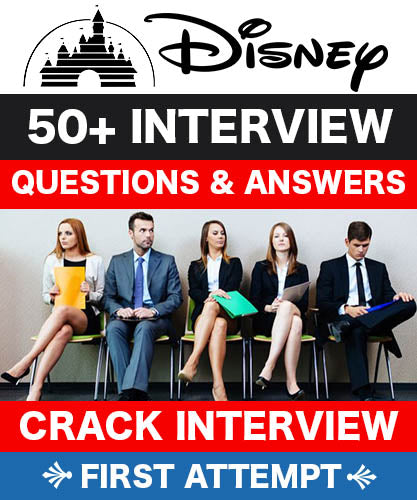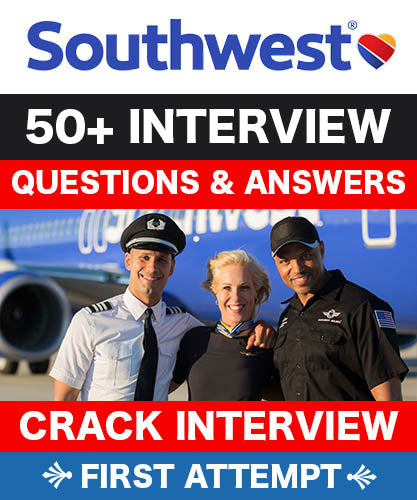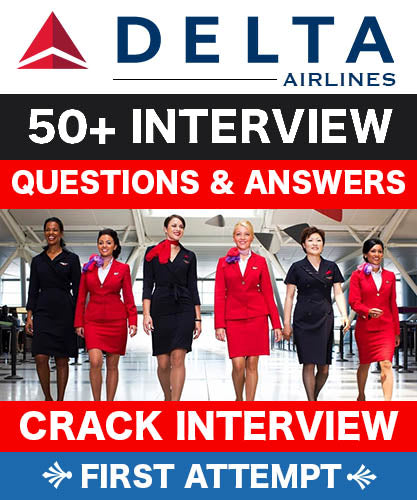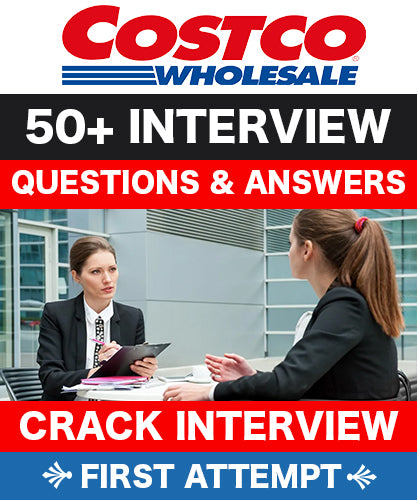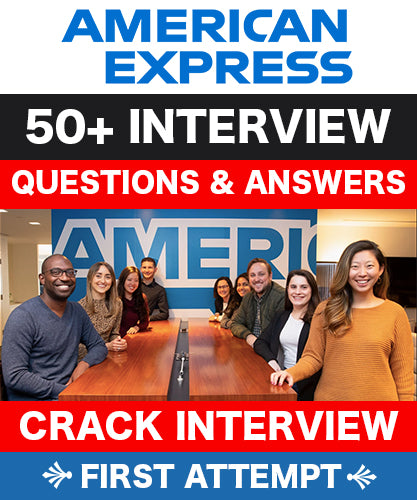Interpreter Sign Language Technical Expert ID-15155
Summary
An ideal candidate should be able provide interpreting and transliterating services between spoken English and Sign Language (such as American Sign Language, Pidgin Signed English, Manually Coded English, or other forms of signed communication). The position is within the Office of Civil Rights, Readiness and Disaster Support Division, Sign Language Interpreter Branch.
For specific salary information related to your location, please review the OPM salary tables.
This job is open to
- The public
U.S. Citizens, Nationals or those who owe allegiance to the U.S.
Other Jobs You May Be Interested In
Remote Data Entry, No Experience, $40/hr, Part-TimeVirtual Assistant, $45/hr, Remote, No Experience, Night Job
Entry-Level Remote Data Entry, $50/hr, Evening Job
Customer Support, No Degree, $40/hr, Remote, Weekend Job
Remote Phone Job, $42/hr, Part-Time, College Student Friendly
Virtual Assistant, $40/hr, Remote, No Degree, Night Job
Part-Time Data Entry, $45/hr, Remote, College Student Friendly
Remote Moderator, No Degree, $50/hr, Evening, Weekend Job
Remote Customer Support, $42/hr, Night Job, No Experience
Live Chat Support, $40/hr, Remote, Entry Level, Part-Time
Virtual Assistant, Remote, $42/hr, Weekend, No Experience
Remote Data Entry, $45/hr, No Degree, Night Shift
Part-Time Customer Support, $40/hr, Remote, College Student
Remote Live Chat, $50/hr, Part-Time, Evening/Night Job
Entry Level Phone Job, $42/hr, Remote, No Degree Required
Weekend Data Entry, $45/hr, Remote, No Experience
Remote Virtual Assistant, $40/hr, Evening, Part-Time Job
Remote Moderator, $42/hr, Part-Time, Weekend, No Degree
Data Entry, $45/hr, Remote, Night Shift, College Student Job
Phone Support, Remote, $50/hr, No Experience, Part-Time
Virtual Assistant, No Experience, $42/hr, Remote, Weekend
Remote Customer Support, $45/hr, Part-Time, College Student
Data Entry, Remote, $40/hr, Night Shift, No Degree
Evening Virtual Assistant, Remote, $45/hr, No Experience
Weekend Customer Support, $42/hr, Remote, College Student
Remote Data Entry, $50/hr, No Experience, Evening/Night Job
Remote Live Chat, $40/hr, Part-Time, No Degree Required
Virtual Assistant, $42/hr, Remote, Weekend, Entry Level
Remote Phone Support, $45/hr, Evening, No Experience Required
Data Entry, No Experience, $50/hr, Remote, College Student
Remote Moderator, $40/hr, Weekend, No Degree, Part-Time
Live Chat Support, Remote, $42/hr, Night Shift, College Student
Phone Job, $50/hr, Remote, No Degree, Part-Time, Weekend
Data Entry, $45/hr, Remote, Evening, No Experience Required
Virtual Assistant, No Experience, $42/hr, Remote, Part-Time
Remote Customer Support, $50/hr, Night Shift, No Degree
Remote Data Entry, $40/hr, College Student Friendly, Part-Time
Live Chat Support, $42/hr, Weekend, Remote, No Degree
Virtual Assistant, Remote, $45/hr, Evening, No Experience
Remote Phone Job, $50/hr, College Student, Night Shift
Remote Moderator, $42/hr, Weekend, No Experience Required
Data Entry, No Degree, $45/hr, Part-Time, Remote Job
Customer Support, $50/hr, Remote, Evening/Night Job, No Degree
Virtual Assistant, $42/hr, Remote, Weekend, No Degree
Remote Live Chat, $45/hr, College Student, No Experience
Remote Data Entry, $40/hr, Part-Time, No Degree Required
Phone Support, $50/hr, Weekend, Remote, No Experience
Virtual Assistant, $42/hr, Evening, Remote, No Degree
Remote Customer Support, $45/hr, No Experience, Part-Time
Data Entry, $50/hr, Night Job, No Degree, Remote
Remote Moderator, $40/hr, College Student Friendly, Part-Time
Virtual Assistant, Remote, $42/hr, Weekend, No Experience
Remote Phone Job, $45/hr, Part-Time, No Degree Required
Customer Support, $50/hr, Night Job, Remote, No Experience
Data Entry, Remote, $42/hr, Evening Job, No Degree
Live Chat Support, $45/hr, Weekend, Remote, College Student
Virtual Assistant, Remote, $50/hr, Part-Time, Night Shift
Data Entry, $40/hr, No Experience, Remote, Weekend Job
Remote Phone Job, $45/hr, No Degree, College Student Friendly
Customer Support, $42/hr, Remote, Evening, No Experience
Virtual Assistant, $50/hr, Weekend, No Degree, Remote
Remote Data Entry, $40/hr, Part-Time, College Student Job
Phone Support, Remote, $42/hr, Evening/Night Shift
Virtual Assistant, No Degree, $45/hr, Remote, Part-Time
Live Chat Support, $50/hr, Remote, No Experience Required
Remote Moderator, $42/hr, College Student, Weekend Job
Data Entry, $45/hr, Remote, Night Job, No Degree
Virtual Assistant, $50/hr, Remote, Part-Time, Evening Job
Remote Customer Support, $42/hr, Weekend, No Experience
Phone Job, $45/hr, Remote, Night Shift, No Degree
Remote Live Chat, $50/hr, College Student, No Experience
Data Entry, $40/hr, Part-Time, Remote, Weekend Job
Virtual Assistant, $42/hr, Remote, No Experience, Evening
Remote Phone Support, $45/hr, Night Job, College Student
Remote Moderator, $50/hr, No Degree, Weekend, Part-Time
Virtual Assistant, $40/hr, Remote, Night Shift, No Experience
Customer Support, $42/hr, Remote, Part-Time, No Degree
Remote Data Entry, $45/hr, Weekend Job, College Student
Phone Support, Remote, $50/hr, No Experience, Night Shift
Virtual Assistant, $42/hr, Evening, Remote, College Student
Live Chat Support, $45/hr, Part-Time, Remote, No Degree
Data Entry, $50/hr, Remote, Evening Job, College Student
Virtual Assistant, $40/hr, Weekend, Remote, No Experience
Remote Phone Job, $42/hr, Night Shift, College Student Friendly
Remote Customer Support, $45/hr, No Degree, Evening Job
Virtual Assistant, $50/hr, Part-Time, Remote, Weekend Job
Data Entry, $40/hr, Evening Job, No Experience, Remote
Remote Live Chat, $42/hr, Weekend, No Degree, Part-Time
Virtual Assistant, $45/hr, No Experience, Remote, Night Job
Phone Job, $50/hr, Remote, Part-Time, College Student
Remote Data Entry, $42/hr, Evening/Night Job, No Experience
Remote Moderator, $45/hr, No Degree, Weekend Job, Part-Time
Live Chat Support, $50/hr, Remote, Night Shift, No Degree
Virtual Assistant, $40/hr, Weekend, College Student, Remote
Remote Phone Job, $42/hr, Part-Time, No Experience Required
Remote Data Entry, $45/hr, No Degree, Weekend, Night Job
Virtual Assistant, $50/hr, Evening, Remote, College Student
Customer Support, $42/hr, Weekend Job, Remote, No Degree
Phone Support, $45/hr, Remote, No Experience, Evening Job
Data Entry, $50/hr, Night Shift, No Degree, Remote Job
Remote Data Entry, No Experience, $40/hr, Part-Time
Virtual Assistant, $45/hr, Remote, No Experience, Night Job
Entry-Level Remote Data Entry, $50/hr, Evening Job
Customer Support, No Degree, $40/hr, Remote, Weekend Job
Remote Phone Job, $42/hr, Part-Time, College Student Friendly
Virtual Assistant, $40/hr, Remote, No Degree, Night Job
Part-Time Data Entry, $45/hr, Remote, College Student Friendly
Remote Moderator, No Degree, $50/hr, Evening, Weekend Job
Remote Customer Support, $42/hr, Night Job, No Experience
Live Chat Support, $40/hr, Remote, Entry Level, Part-Time
Virtual Assistant, Remote, $42/hr, Weekend, No Experience
Remote Data Entry, $45/hr, No Degree, Night Shift
Part-Time Customer Support, $40/hr, Remote, College Student
Remote Live Chat, $50/hr, Part-Time, Evening/Night Job
Entry Level Phone Job, $42/hr, Remote, No Degree Required
Weekend Data Entry, $45/hr, Remote, No Experience
Remote Virtual Assistant, $40/hr, Evening, Part-Time Job
Remote Moderator, $42/hr, Part-Time, Weekend, No Degree
Data Entry, $45/hr, Remote, Night Shift, College Student Job
Phone Support, Remote, $50/hr, No Experience, Part-Time
Virtual Assistant, No Experience, $42/hr, Remote, Weekend
Remote Customer Support, $45/hr, Part-Time, College Student
Data Entry, Remote, $40/hr, Night Shift, No Degree
Evening Virtual Assistant, Remote, $45/hr, No Experience
Weekend Customer Support, $42/hr, Remote, College Student
Remote Data Entry, $50/hr, No Experience, Evening/Night Job
Remote Live Chat, $40/hr, Part-Time, No Degree Required
Virtual Assistant, $42/hr, Remote, Weekend, Entry Level
Remote Phone Support, $45/hr, Evening, No Experience Required
Data Entry, No Experience, $50/hr, Remote, College Student
Remote Moderator, $40/hr, Weekend, No Degree, Part-Time
Live Chat Support, Remote, $42/hr, Night Shift, College Student
Phone Job, $50/hr, Remote, No Degree, Part-Time, Weekend
Data Entry, $45/hr, Remote, Evening, No Experience Required
Virtual Assistant, No Experience, $42/hr, Remote, Part-Time
Remote Customer Support, $50/hr, Night Shift, No Degree
Remote Data Entry, $40/hr, College Student Friendly, Part-Time
Live Chat Support, $42/hr, Weekend, Remote, No Degree
Virtual Assistant, Remote, $45/hr, Evening, No Experience
Remote Phone Job, $50/hr, College Student, Night Shift
Remote Moderator, $42/hr, Weekend, No Experience Required
Data Entry, No Degree, $45/hr, Part-Time, Remote Job
Customer Support, $50/hr, Remote, Evening/Night Job, No Degree
Virtual Assistant, $42/hr, Remote, Weekend, No Degree
Remote Live Chat, $45/hr, College Student, No Experience
Remote Data Entry, $40/hr, Part-Time, No Degree Required
Phone Support, $50/hr, Weekend, Remote, No Experience
Virtual Assistant, $42/hr, Evening, Remote, No Degree
Remote Customer Support, $45/hr, No Experience, Part-Time
Data Entry, $50/hr, Night Job, No Degree, Remote
Clarification from the agency
This position is announced under FEMA's Excepted Service, Stafford Act Hiring Authority for a full-time Cadre of On-Call Response/Recovery Employee (CORE) appointment. After three years of continuous service, CORE employees earn competitive eligibility to apply for permanent full-time positions at FEMA. Veterans Preference does not apply to the CORE selection process.
Duties
What will I do in this position if hired?
In this Interpreter Sign Language Technical Expert position, you will serve as an agency disaster response and recovery linguistic subject matter expert, interpret matters discussed over an unlimited range of subjects regarding information to the media and general public..
Typical assignments include:
- Working as a team with another SLI and/or a Qualified/Certified Deaf Interpreter (CDI) to ensure that communication between Deaf/Hard- of-Hearing/Deaf-Blind persons and hearing persons is conveyed successfully from the source language into the target language or communication form most clearly understood by the participants.
- Working as reasonable accommodation for Deaf/Hard-of-Hearing/Deaf- Blind FEMA staff and may be assigned to interpret for disaster survivors. The SLI works for OCR cadre and frequently interacts with members of other FEMA cadres such as External Affairs (EA), Disability Integration (DI), and Individual Assistance (IA).
- Interpreting in a wide variety of situations and conditions during disaster response and recovery, including (but not limited to) internal FEMA staff meetings, briefings, training sessions, conference calls, community meetings, and other events.
What else do I need to know?
At FEMA, our mission is to help people before, during and after disasters, and every employee at FEMA has a role in emergency management. Every FEMA employee has regular and recurring emergency management responsibilities, though not every position requires routine deployment to disaster sites. All positions are subject to recall around the clock for emergency management operations, which may require irregular work hours, work at locations other than the official duty station, and may include duties other than those specified in the employee's official position description. Travel requirements in support of emergency operations may be extensive in nature (weeks to months), with little advance notice, and may require employees to relocate to emergency sites with physically austere and operationally challenging conditions.
This announcement is for a position as a CORE (Cadre of On-Call Response/Recovery Employee). CORE employees are full-time employees hired to directly support the response and recovery efforts related to disasters. Employees are hired under the Robert T. Stafford Act and are excluded from the provisions of title 5, United States Code, governing jobs in the competitive service. They can be hired under a streamlined process instead of a competitive process. After three years of continuous service, Stafford Act employees may be granted competitive eligibility to apply for permanent full-time positions at FEMA.
This position will be hired into a temporary 2-Year, excepted service appointment. Appointments may be renewed based on workload, funding, and supervisory approval.
Requirements
Conditions of Employment
To ensure the accomplishment of our mission, DHS requires every employee to be reliable and trustworthy. To meet those standards, all selected applicants must undergo, successfully pass, and maintain a background investigation for Public Trust / Moderate Risk as a condition of placement into this position. This may include a credit check after initial job qualifications are determined, a review of financial issues, such as delinquency in the payment of debts, child support and/or tax obligations, as well as certain criminal offenses and illegal use or possession of drugs (please visit: Mythbuster on Federal Hiring Policies for additional information). For more information on background investigations for Federal jobs, please visit OPM Investigations.
Conditions of Employment:
- You must be a U.S. citizen to apply for this position.
- You must successfully pass a background investigation.
- Selective Service registration required.
- You must be able to obtain and maintain a Government credit card.
- You must be able to deploy with little or no advance notice to anywhere in the United States and its territories for an extended period of time.
- Please review the Additional Information section for additional key requirements.
Qualifications
All qualifications and eligibility requirements must be met by the closing date of the announcement.
To qualify for this Interpreter Sign Language Technical Expert position at the IC-12 level, you must possess one full year of specialized experience equivalent to at least the IC-11 level in the Federal government, which has equipped you with the skills needed to successfully perform the duties of the position. Experience may be obtained in the federal government, a state or local government, or private sector, and must demonstrate the following:
- Interpreting (spoken to sign/sign to spoken) for Deaf and Hard-of-Hearing individuals in a variety of professional settings, and
- Interpreting (spoken to sign/sign to spoken) in a virtual setting (Video relay or video interpreting) for Deaf and Hard-of-Hearing individuals.
Please read the following important information to ensure we have everything we need to consider your application:
- Do not copy and paste the duties, specialized experience, or occupational assessment questionnaire from this announcement into your resume as that will not be considered a demonstration of your qualifications for this position.
- Please limit your resume to five pages. If more than five pages are submitted, only the first five pages will be reviewed to determine your eligibility and qualifications.
- Your resume serves as the basis for experience related qualification determinations, and you must highlight your most relevant and significant work experience and education (if applicable), as it relates to this job opportunity. Please use your own words, be clear, and specific when describing your work history. We cannot make assumptions regarding your experience.
Are you qualifying based on your work experience?
- Qualifications are based on your ability to demonstrate in your resume that you possess one year of the specialized experience for this announcement at a comparable scope and responsibility. To ensure all of the essential information is in your resume, we encourage you to use the USAJOBS online Resume Builder. If you choose to use your own resume, it must contain the following information organized by experience/position: (1) job title, (2) name of employer, (3) start and end dates of each period of employment (from MM/DD/YY to MM/DD/YY), (4) detailed description of duties performed, accomplishments, and related skills, and (5) hours worked per week (part-time employment will be prorated in crediting experience). Federal experience/positions must also include the occupational series, grade level, and dates in which you held each grade level.
- Are you a current or former FEMA Reservist/Disaster Assistance Employee (DAE)? To accurately credit your experience from intermittent positions and Reservist Deployments, you must list the dates (from MM/DD/YY to MM/DD/YY) of deployments that are relevant to your qualifying experience, along with the job title and specific duties you were responsible for during each deployment.
- Determining length of General or Specialized Experience is dependent on the above information. Failure to provide the above information in your resume may result in your application being found "not qualified."
- Experience refers to paid and unpaid experience, including volunteer work done through National Service programs (e.g., Peace Corps, AmeriCorps) and other organizations (e.g., professional, philanthropic, religious, spiritual, community, student, social). Volunteer work helps build critical competencies, knowledge, and skills, and provides valuable training and experience that translates directly to paid employment. You will receive credit for all qualifying experience, including volunteer experience.
- For additional information on crediting experience and/or education, please reference the OPM General Schedule Qualification Standards
Education
No Educational Substitution: There is no educational substitution for this position, and you must meet the qualifications listed in the "requirements" section of this announcement.










